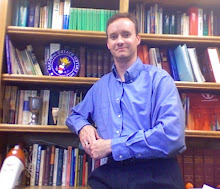Haiti teaching
On Sunday, I preached in a service at a church in Jacmel. It was a fantastic experience... while I am picking up some Creole, of course I had a translator. Working at the church in Jacmel was a grand experience... working side by side with congregation members. We returned to Port au Prince over the mountain, and drove through much of the city. What our eyes witnessed can not fully be written down. The city was clearly once a thriving community with infrastructure, roads and commerce. But what has happened since the atrocities of 1986 and 1999 has been a complete neglect of every resource the country possessed. Roads are barely usable, from the holes and the refuse everywhere. Masses gather everywhere walking and peddling looking for a single way to make so much as a morsel to get them by for the day. The conditions that these multitudes endure is beyond belief. The streams and waterways are overrun with garbage, and the primary traffic rule seems to be chaos. In the midst of all the despair that seemed apparent to me, such was not the attitude of the people. Despite the heat and close quarters of so many thousand, I never saw a single squabble or sign of ill-will.
For the last week, I spent my time at the seminary with 40 or so pastors in a series of lectures on the book of Revelation. So much of my teaching on Apocalyptic literature hinges on careful distinctions regarding the use of language, and I found this a very difficult task when making use of an interpreter. There were some who were overwhelmed with what I was offering and some who were overjoyed. Teaching in this context has been complex and challenging. The students have a wide variety of education and theological background. All in all, it went well, and my colleagues would share with me the sentiment that it felt good to feel useful and as if our presence really was making a difference. As the end of the week, I was in the faculty procession of the semester-ending graduation ceremony. (I actually handed them the diplomas as they crossed the stage.)
CONASPEH is an incredible organization and makes possible a feeding of multitudes with such a small loaf.

